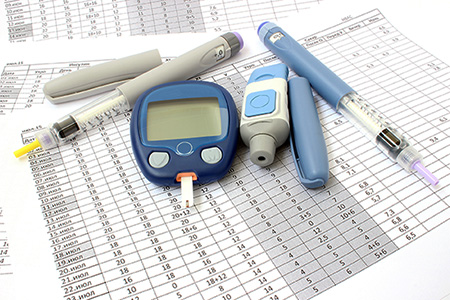POSTED BY Jeff Padgett AT 5:29 P.M. Apr 28, 2016
ipCapital Group recently had the privilege of attending the 2016 BIOMEDevice Boston conference. Although the array of gears, wheels, pumps, membranes, molds, tubes and tools we witnessed was impressive, from our view, it was the data that stole the show. The Biomedical Innovation series of presentations focused heavily on the quest to collect, store and (somehow) utilize data, and made it clear that data is driving the cutting edge of the medical device industry. Three main themes emerged:
- Data is creating patient expectations;
- The gap between behavioral data and diagnostic data must be bridged; and
- Data collected must address a defined problem.
Data is Creating Patient Expectations
Until recently, data was the purview of scientists and engineers. Now it’s a part of everyday life. From tracking an Amazon order to reviewing the Google Analytics for your blog, everyone uses data. So it’s no surprise that as the patient experience is morphing into a consumer experience, data is playing a bigger role. Patients are expecting access to their health record and are challenging the notion of its ownership. Do the doctors “own” the data because they collected it? Do they “own” it because they understand it? Or, does the patient “own” it because it’s about them? Regardless of who “owns” the data (which may never get resolved, and in the end may not really matter), the fact is that patients expect there to be a rich dataset related to their health that they can access just like a playlist history on Spotify or the revision history of a Google Doc. Medical device manufacturers increasingly need to consider the data demands of the patient as well as those of medical professionals.
Bridging the Gap Between Behavioral Data and Diagnostic Data is Critical
Two distinct types of medical data are being created: Behavioral and Diagnostic. Behavioral data provides information about what you are doing and when (think FitBit), whereas Diagnostic data is the traditional medical data such as blood sugar, temperature, etc. The convergence of these datasets, however, is critical to create a virtuous cycle of data driven health. Kevin Young of Continuum in Boston explained the human approach to this process quite succinctly: Believe -> Know -> Act => Behavior Change … Repeat. Because most health issues are behavior related (or at least aggravated), data collection allows a patient to Know the impact Actions and create Behavior Change that reinforces their Beliefs.
But who’s directing the data collection, who’s doing the collecting and who’s paying? Typical products require a relatively straight forward marketing approach because the user is the buyer and payer. Medical devices are quite different, though. As pointed out by Sridhar Iyengar (founder of Misfit Wearables and CEO of Elemental Machines) medical devices, and in this context, data collecting medical devices, need to address the functional needs of the patient, the technical needs of the prescriber (Dr., hospital, etc.) and the financial demands of the insurance company (or other payer). Clearly, a much more complicated business landscape. Given the growing complexity of the marketplace, how will new technologies and business models bridge the gap between behavioral and diagnostic data while satisfying the demands of multiple stakeholders? Clearly this is a space primed for innovation.
Data Collected Must Address a Defined Problem
There was a time when data collection was expensive. Because it was expensive, a strong thesis and research plan were required to avoid wasted data collection efforts. Today we have what appears (at first blush) to be the opposite problem: too much data! However, today what we are experiencing may be the classic quantity/quality trade off. Although it’s true that we have more data than we know what to do with, how confident are we that it is as broad as it is deep? That we are not blinded to the quality by the quantity? So this puts us back to being sure we are asking the right questions that collect the right data to solve problem at hand. Historically, the right question saved time and money, today, asking the right question could save lives.
How ipCapital Group Can Help
ipCapital Group specializes in working with business, legal, technical and marketing teams to accelerate innovation that’s consistent with your business goals. What this means is: we are experts in asking the questions and creating the IP that focuses R&D efforts on marketable products and services that support your business. We do this by working with companies to understand both their technical capacity and business goals. Our work helps companies to discern between what they can invent and what they should. This results in better directed R&D efforts that yield marketable products that reflect the strength of the business.
We use a variety of proprietary processes and methods to break down artificial technical and bureaucratic barriers, then utilize associative thinking approaches to blend the best ideas and concepts from all disciplines to generate value and satisfy the increasing expectations of the market. This approach also allows us to bridge gaps and create synergies both internal and external for our clients.
As the medical device industry becomes more and more dependent on data, success will be based on the right data that answers the right questions. ipCapital Group has a team of experts that routinely handle these types of complex problems and accelerate innovation.

